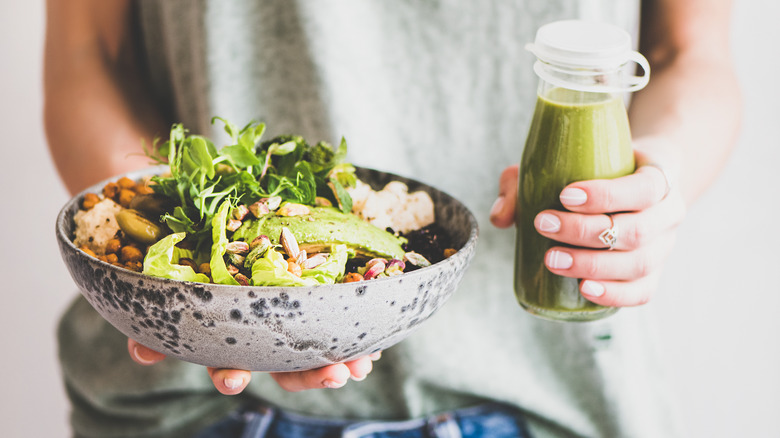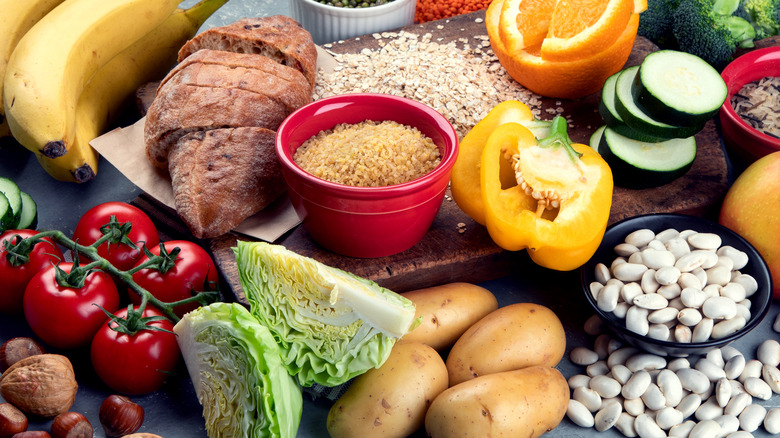What Is The Glycemic Index?
Wellness is not simply a buzzword, but an achievable state of being. Health advisors and food labels may suggest what's healthy and what's not. But in their absence, how does the everyday consumer know what's best for them? The glycemic index is a way to predict how certain foods affect overall health. You can definitely use this index to your advantage.
The glycemic index is a scale measuring how quickly the carbs in foods will affect blood sugar levels (via Healthline). It offers insight to the factors that affect this nutritional value, like ripeness and cooking methods. Eating high-carb foods spikes glucose numbers. Consistently high blood sugar can cause temporary illness and is part of chronic diseases like diabetes (via MitoQ). The good news is many diseases are preventable with plenty of whole foods. According to the CDC, in 2017 over 100 million people in the U.S. were living with diabetes or prediabetes.
Does this mean we have to cut out all carbs to enjoy great health? Not at all! Have no fear, the glycemic index is here.
Why use the glycemic index?
If you want to change your lifestyle, informed decisions are the more healthy ones. Eating foods on the medium or low side of the glycemic index scale will aid in weight loss, balanced cholesterol levels, and "improved blood sugar regulation," according to Healthline. Those dealing with heart disease and diabetes will find the most benefit from using this scale. The glycemic index can also be preventatively used, to create individual diets for longevity. According to Medical News Today, "there is a consensus that diets low in GI and GL are relevant to the prevention and management of diabetes, coronary heart disease, cancer, and probably obesity."
GI levels are predetermined for most foods.The lower the "points", the better the food is for you. Foods low on the GI scale rank at 55 or less. Examples of these are non-starchy foods like apples, broccoli, quinoa and chickpeas. They convert to energy gradually in the body (which is ideal). Blood glucose will not spike from eating these type of foods. Medium scale rankings fall between 56 and 69 points. Healthline writes that consuming these foods, including orange juice, soda, and honey, will cause a quicker rise in blood glucose. Topping the GI scale (above 70) are foods like instant oatmeal, watermelon, and boiled potatoes (via OSU Extension). If you have high blood sugar, steer clear of the high GI foods.
The glycemic index is a tool to determine how carbs affect blood glucose, according to MDApp. Not all carbs are created equal. The fact that the term "healthy" has been used so often to describe food makes this index more valuable. Health-conscious consumers may utilize the GI to debunk what "healthy" foods actually are. If you have interest in changing your diet or have current health concerns, consult a nutritionist or health professional before making any major changes.

